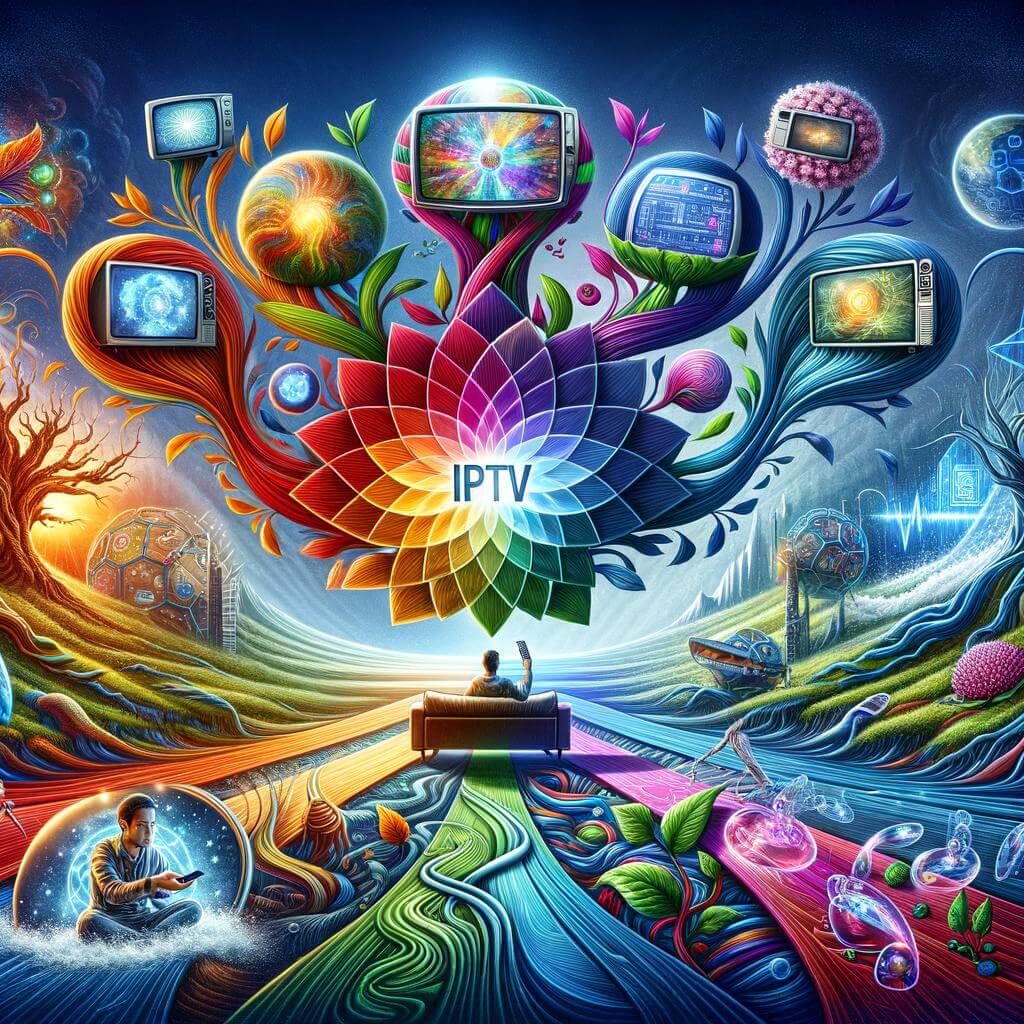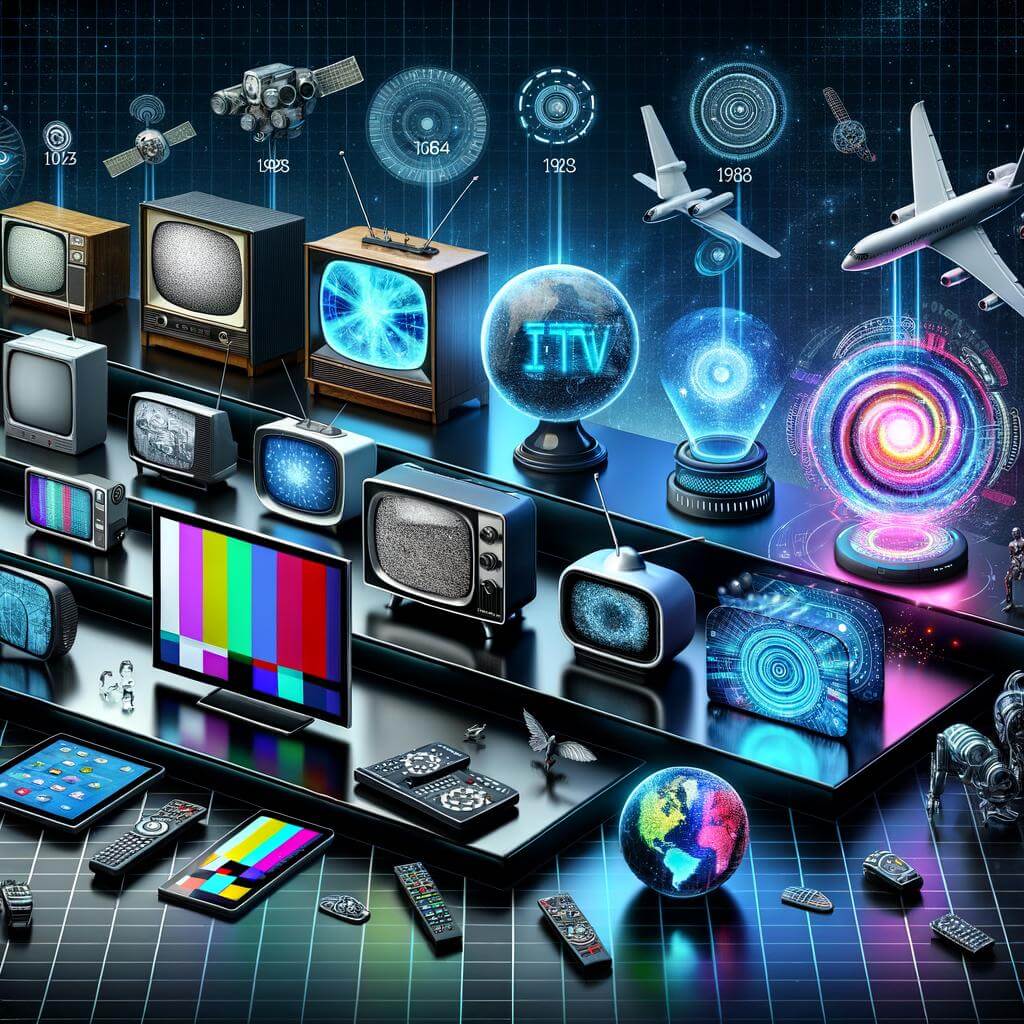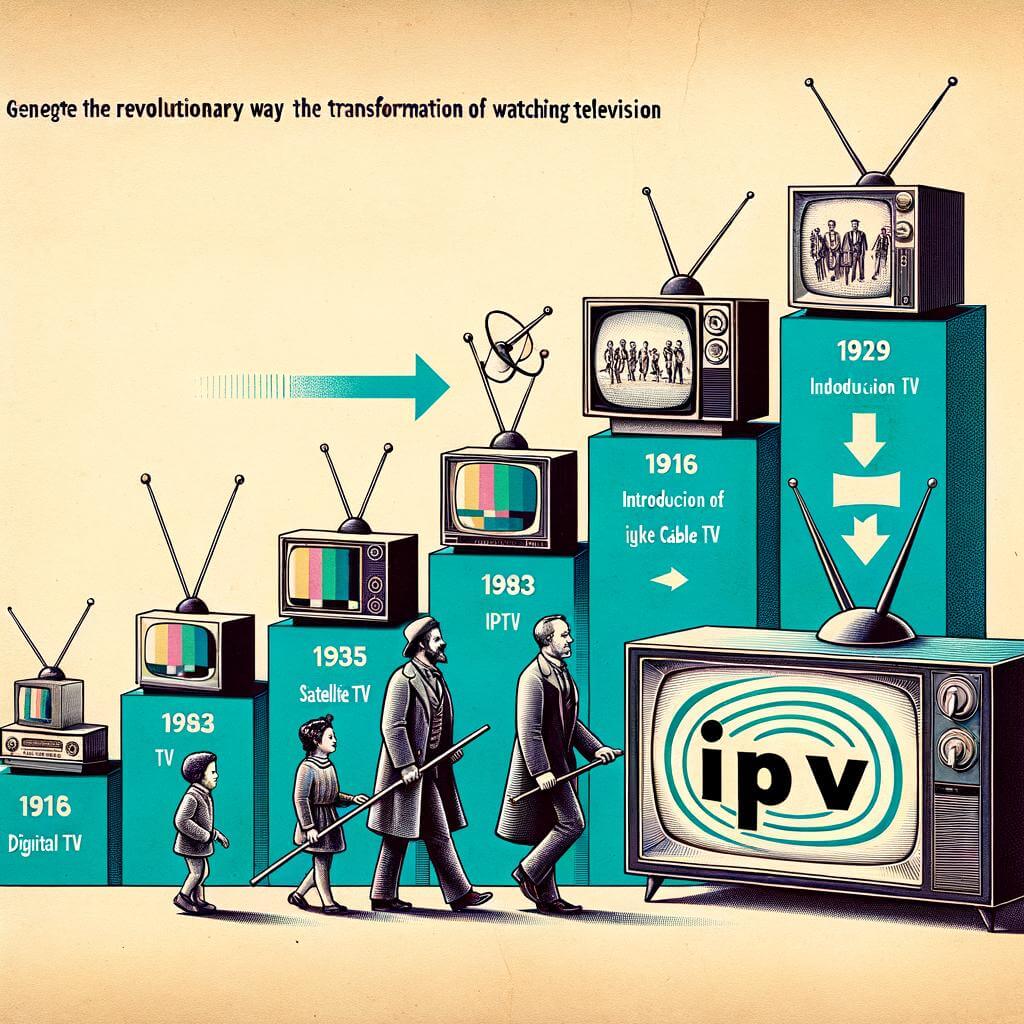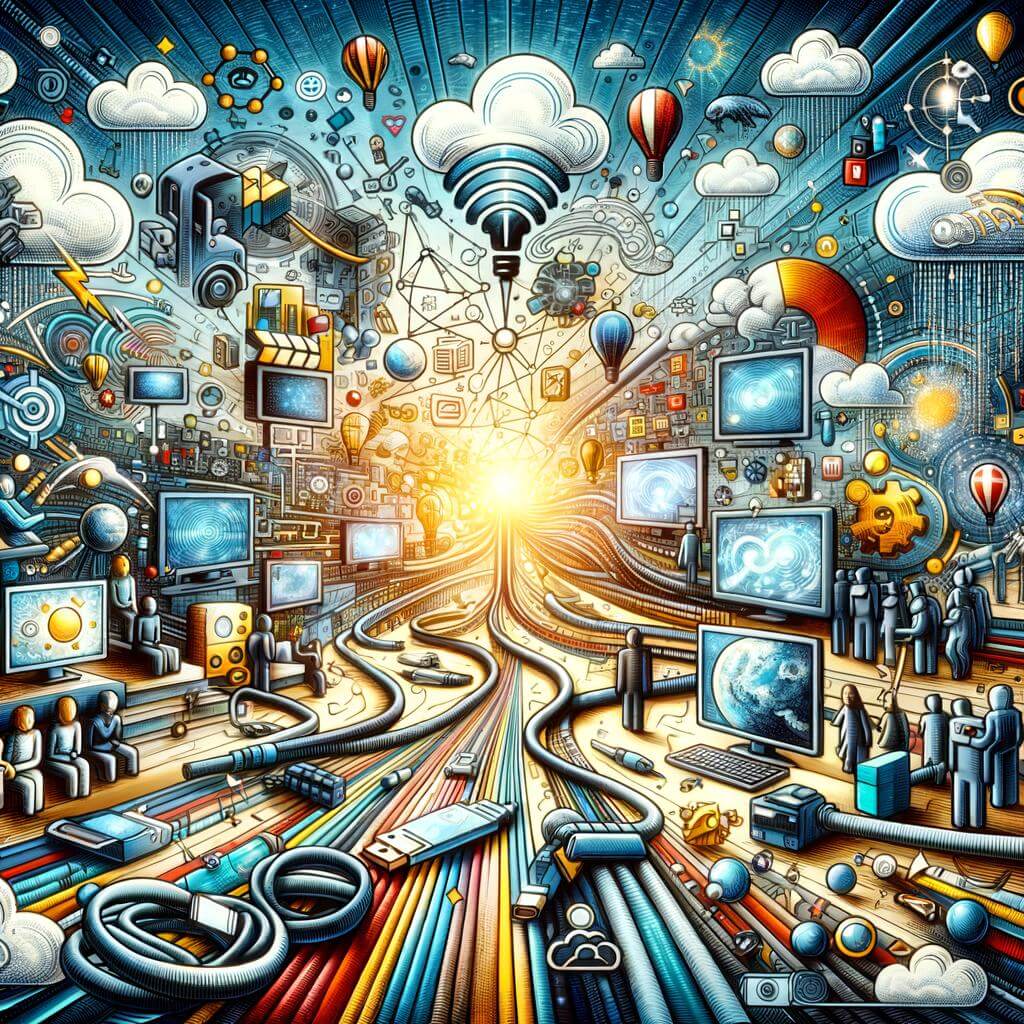
As the world continues to evolve in the digital age, so too does the technology we use on a daily basis – and nothing is more indicative of this advancement than the fast-paced transformation of the television landscape. Forget satellite and cable, Internet Protocol Television (IPTV) is not just knocking at the doorstep of outdated TV systems, it’s poised to completely revolutionize it! Weaving together the internet, TV, and telecommunications like never before, IPTV is leading television into an exciting new frontier where content is more personalized, accessible, and user-friendly. In this article, we delve into how IPTV is reconstructing the traditional TV viewing experience and why you should tune into this dynamic game-changer in the media broadcast industry.
Table of Contents
- Understanding the Revolution: How IPTV is Redefining Television Viewing
- The Role of Broadband in Facilitating the IPTV Boom
- Unpacking the Impact: Traditional Broadcasting Versus IPTV
- Embracing Change: Why Shifting to IPTV is a Strategic Move for Consumers and Providers
- Decoding the Future: Predicted Trends in the IPTV Landscape
- Q&A
- Future Outlook
Understanding the Revolution: How IPTV is Redefining Television Viewing

Imagine a world where your TV schedule is dictated not by the networks, but by your own personal preferences. Say hello to the future of television: IPTV, or Internet Protocol Television. This digital streaming method allows you to choose what to watch, when to watch, and even where to watch. You’re no longer tied to broadcast schedules, the tyranny of the remote is a thing of the past. Advanced features such as ‘pause live TV’, ’video on demand’ and ‘personalised playlists’ are simplifying and revolutionising the viewer experience.
With this technology, content is not broadcast in the traditional sense, instead, it’s delivered using the same protocols that power the Internet. The direct benefit is two-fold: Quality and Variety.
- Quality: IPTV provides superior quality as it delivers content using high-speed broadband. Also, buffering woes are minimal even if multiple devices are streaming simultaneously.
- Variety: Unlike traditional television where you must subscribe to specific packages, IPTV offers a comprehensive range of international and local shows, movies, sports, news, and much more.
| Traditional TV | IPTV |
|---|---|
| Limited Channels | Unlimited Channels |
| Scheduled Programming | On-Demand Programming |
| Standard Quality | HD Quality |
In essence, IPTV gives the power back to the viewers. You get to choose the content you enjoy, customise your own viewing schedule and access premium programming without a satellite dish or an antenna. This is television on your terms.
The Role of Broadband in Facilitating the IPTV Boom

Broadband is a foundational element in the rise of IPTV. It takes high-speed broadband networks to transmit the vast amounts of data involved in streaming high-definition IPTV content. As a result, the proliferation and upgrade of broadband networks worldwide have played a critical role in IPTV’s strength. It’s nigh impossible to separate IPTV’s rise from the evolution and growth of broadband technology, making it a major player in the TV revolution.
The Impact of Faster Broadband Speeds
With broadband speeds getting faster than ever, viewers can now access high-definition IPTV streams with virtually no buffering or lagging.
- Faster connections mean smoother streaming, even for 4k and HDR content.
- In addition, advances in compression technology and broadband allow IPTV services to deliver a large number of channels and even 3D content with ease.
- Increased broadband speeds also enable the incorporation of interactive features, like voice search and social TV, into IPTV platforms, enhancing the viewing experience.
Global Broadband Connectivity
IPTV is promoting the demand for broadband connectivity around the world. As IPTV needs robust broadband networks to perform effectively, countries and regions are improving their broadband infrastructures.
| The United States | With the introduction of fiber-optic cables and 5G networks, the US leads in broadband speed. |
| Europe | European countries, particularly Nordic ones, have some of the fastest and most reliable broadband connections. |
| Asia | With the rapid urbanization in Asia, IPTV has fueled the need for better broadband networks. |
In conclusion, the emergence of reliable and faster broadband networks worldwide is instrumental in IPTV’s proliferation. As more regions embrace broadband, the future of IPTV looks brighter, delivering an ever-improving TV viewing experience.
Unpacking the Impact: Traditional Broadcasting Versus IPTV

In the dynamic landscape of entertainment and television programming, Internet Protocol Television (IPTV) is unleashing a revolution. While traditional broadcasting platforms like cable and satellite have served us well for decades, they are now viewed as restrictive and dated in an age that demands flexibility and personalization. Unlike these platforms which send signals and content in one direction, IPTV deploys a two-way system, creating a more interactive viewing experience that responds to individual user preferences.
With IPTV, viewers can customize their viewing content, watch programs on-demand, and even rewind or fast forward through live broadcasts. Additionally, the shift towards IPTV means that consumers are no longer bound by programming schedules imposed by broadcasters. Instead, they can choose what they watch and when they watch it, enjoying an unprecedented level of convenience and freedom. The potential for a more personalised, immersive viewing experience has made IPTV the go-to choice for modern consumers.
| Traditional Broadcasting | IPTV |
|---|---|
| Broadcasting schedules imposed by networks | On-demand content, watch anytime, anywhere |
| One-way communication | Two-way communication for a more interactive experience |
| Restrictive and non-flexible | Unlimited customization and personalization |
The advent of IPTV is not just changing how we consume television, but also how advertisers reach their target audience. This technology allows for targeted advertising, where advertisements can be tailored to match viewer preferences based on their viewing habits. This data-driven advertising provides a win-win situation, delivering ads that are more likely to appeal to viewers, and generating better return on investment for advertisers.
- Improved User Experience: The interactive nature of IPTV, including features like program searching, personalized recommendations and watch-later options, enhance viewer satisfaction.
- Simplified Technology: By operating over a home’s existing internet connection, IPTV eliminates the need for a separate cable or satellite dish, simplifying the home entertainment setup.
- Cost-Effectiveness: Unlike conventional broadcast methods with high infrastructure costs, IPTV often proves more affordable for consumers, without sacrificing on quality or variety of content.
The shift towards IPTV is indisputable, marking a giant stride for innovation in television and entertainment. As consumers continue to demand more from their viewing experiences, the rise of IPTV is set to shape the future of this industry.
Embracing Change: Why Shifting to IPTV is a Strategic Move for Consumers and Providers

Traditionally, television was a one-way communication channel – broadcasters distributed content, and viewers passively consumed it. However, with the advent of Internet Protocol Television (IPTV), this dynamic has been completely upended. IPTV allows for two-way communication; viewers are no longer passive consumers, but active participants, able to choose what they watch, how they watch it, and when.
There are several strategic benefits to shifting to IPTV, both for consumers and for providers. For starters, the viewing experience is greatly improved. With IPTV, consumers can:
- Access a wider range of content than ever before, including cloud DVR and Video on Demand (VoD).
- View content on various devices, not just their television. This includes smartphones, tablets, and computers.
- Control their viewing experience – pause, play, rewind or fast-forward programs at their leisure.
For providers, IPTV opens up new avenues for monetizing content. They can:
- Offer highly attractive packages and bundles to lure in consumers, such as combination packages of Internet, TV, and phone service.
- Create personalized advertising based on viewing habits, increasing revenue and enhancing customer satisfaction.
- Generate detailed analytics which can be used to make informed decisions and pivot strategy.
| Traditional TV | IPTV |
|---|---|
| One-way communication | Two-way communication |
| Limited content | Wide range of content |
| Consumed on TV only | Consumed on various devices |
| No user control | User control over viewing |
| Limited monetization options | Various monetization avenues |
In conclusion, the shift to IPTV is not just a trend, but a significant evolutionary step in television broadcasting technology. By providing consumers with an enhanced, personalized experience and offering providers new avenues for revenue generation, IPTV is surely the game-changer in the television industry.
Decoding the Future: Predicted Trends in the IPTV Landscape

As we move into the future, the Internet Protocol Television (IPTV) landscape is poised to exceed all our broadcasting expectations. Let’s look into the crystal ball and explore the trends set to dominate the IPTV sphere.
Firstly, we have the transformation into ultra-HD formats. All industry projections point towards the complete upgrade of IPTV systems to 4K and 8K formats, bringing unprecedented visual quality to the users. This means that viewers can look forward to an immersive experience like never before.
Integrated Artificial Intelligence (AI) and Machine Learning : With the integration of AI and machine learning, customized and personalized viewing experiences will dominate the IPTV landscape. Recommendations will be made based not just on viewing history, but by honing in on nuanced viewing behavior.Increased Accessibility : The surge of mobile technology and smart TVs means IPTV will continue to increase its accessibility, broadening in reach and resulting in a more connected world. Your television experience won’t just be confined to your living room, but virtually anywhere.
| Trends | Impact |
| Ultra-HD Formats | Revolutionizes visual quality for viewers |
| AI and Machine Learning Integration | Personalized and bespoke viewing experiences |
| Increased Accessibility | Better connectivity and reach |
Interactive features and inter-connectivity are also set to level up in the IPTV domain. Augmented Reality (AR) and Virtual Reality (VR) integrations are not far off. Imagine yourself as part of the scene you’re watching, or being able to manipulate your screen as though it’s a touchscreen from afar.
Last, but certainly not least, we have the evolution of content. IPTV offers the space for niche channels to grow and unique content to thrive. It’s not just about being bigger, but being more diverse, more precise. It means more choice for the viewer and a richer, more vibrant television landscape as a whole.
Q&A
Q: What is IPTV?
A: IPTV, or Internet Protocol Television, is a system through which television services are delivered using the Internet, instead of being delivered through traditional terrestrial, satellite, and cable television formats.
Q: How does IPTV work?
A: It works by using the Internet Protocol (IP) to deliver video content. Unlike traditional broadcast TV, which sends out a blanket broadcast to all users in an area, IPTV only sends specific content requested by the user, making it a more streamlined and efficient technology.
Q: How is IPTV changing the television landscape, and potentially, the future of television?
A: IPTV is revolutionising the industry by offering unprecedented interactivity and versatility to viewers. With features like time-shifted media, video-on-demand, and live television, people can now watch what they want, when they want, where they want, and how they want.
Q: What other benefits does IPTV offer over traditional television broadcasting?
A: One of the most attractive advantages of IPTV is its capability to integrate with other IP-based services such as high-speed Internet or VoIP. This means that television services can be bundled with other IP services to offer a consolidated package of services to users.
Q: How is IPTV affecting the competition in television broadcasting?
A: IPTV is introducing new players in the broadcasting industry. For instance, telecom providers can now offer TV bundles and compete with cable operators. Also, it’s opening up opportunities for tech companies to develop innovative solutions, like more intuitive user interfaces and smarter recommendation engines.
Q: Is IPTV posing any challenges in the industry?
A: Yes, IPTV is definitely providing a set of challenges for traditional broadcast providers. Understanding and managing IP networks, ensuring a consistently high-quality streams, and developing and maintaining an intuitive and engaging user interface are just a few.
Q: What will the future of television look like with IPTV in the mix?
A: Advancements in IPTV will continue to shape the future of television by providing audiences with more control and flexibility over their viewing experience. It’s highly probable that future television will be defined not by channels or schedules, but by personal preferences and demands.
Q: How can individuals and businesses benefit from the future of IPTV?
A: For individuals, IPTV will continue to enrich the TV viewing experience with more customisation and interactivity. As for businesses, it presents a new avenue for offering a broader range of services. The future of IPTV is full of potentials for both consumers and businesses. It’s definitely a game changer in the world of television.
Future Outlook
In conclusion, the future of television lies in the potential of IPTV to revolutionize the current broadcasting landscape. By transforming how we consume and interact with our favorite shows, movies, and live events, IPTV offers a flexible, personalized, and highly interactive experience that traditional TV simply can’t match. It’s clear that the days of only streaming content according to a set schedule are fading into obscurity. We therefore encourage all stakeholders, from the creative minds that produce content to the consumers who enjoy it, to embrace IPTV. Not merely as an other alternative, but as the new standard for delivering innovative, quality television content. Adaptation in this rapidly changing environment is not only wise, but vital for survival. IPTV is not just changing the game; it’s creating a whole new playing field.
